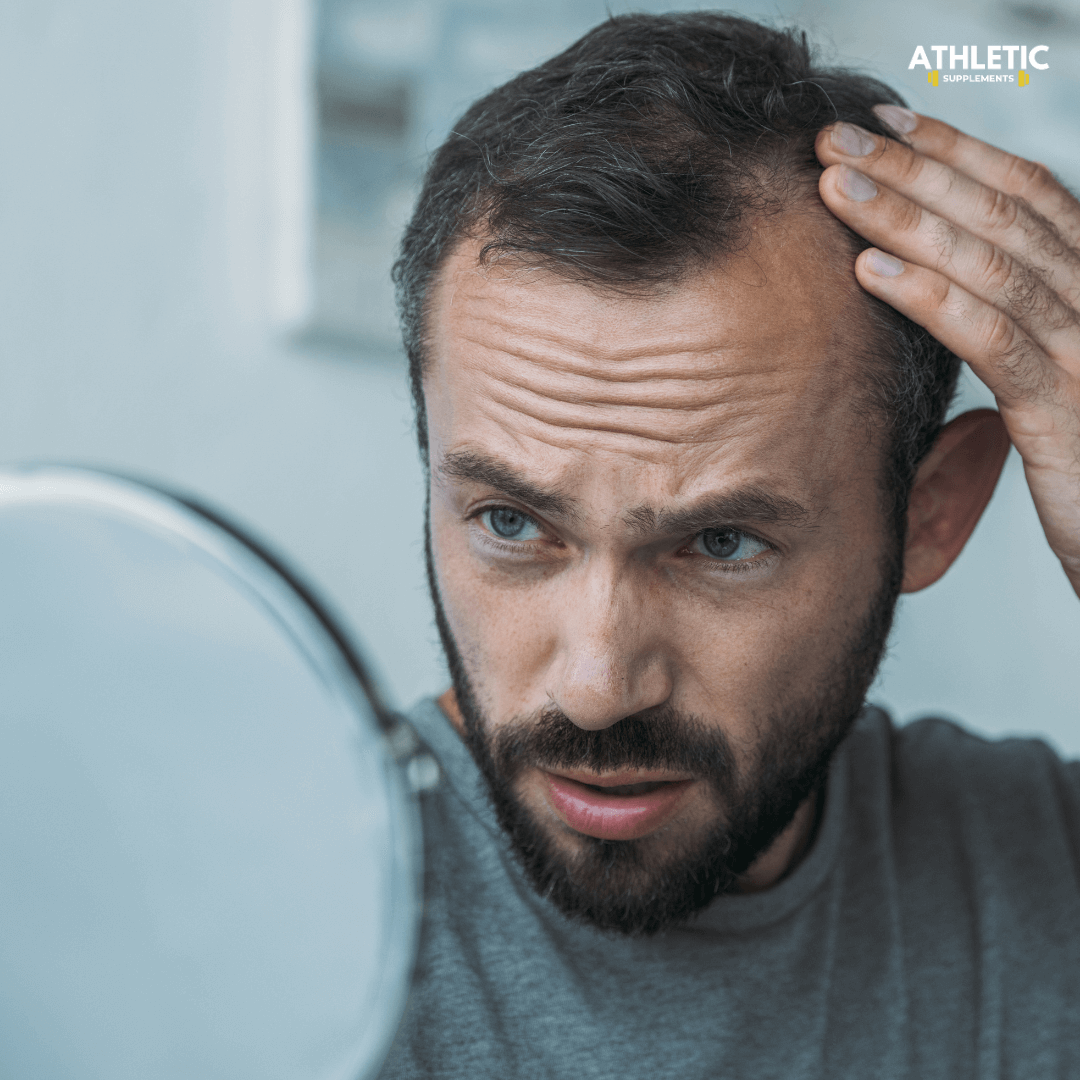Creatine has established itself as one of the most popular and effective dietary supplements for athletes. Despite its numerous benefits, there is always debate about potential side effects , particularly the possibility of hair loss . In this in-depth article, we'll take an in-depth look at the research, myths, and facts surrounding creatine and hair loss to provide clarity.
1. Creatine : A Crucial Supplement for Athletes:
Creatine is much more than just a popular supplement for strength athletes. This natural substance plays a key role in the human body's energy metabolism. Essentially, creatine is stored in muscle cells and serves as an immediately available source of energy, especially during short-term, high-intensity activities such as weight lifting or sprinting.
In addition to its function as an energy store, creatine also has positive effects on cell volume regulation. It promotes hydration of muscle cells , which can result in a more voluminous, plumper appearance. This property also makes creatine attractive to bodybuilders and fitness enthusiasts because it can provide a short-term increase in muscle size.
However, the benefits of creatine go beyond the immediate provision of energy . Numerous studies have shown that creatine can also promote muscle regeneration . This is particularly relevant for athletes who want to recover more quickly from intense training sessions. Improved regeneration allows athletes to train more frequently and more intensively , which can lead to better athletic performance and muscle building in the long term.
In short, creatine is a versatile molecule that not only provides quick energy but also influences various aspects of muscle metabolism and regeneration. Therefore, it is not surprising that it is considered one of the most effective and researched supplements among athletes and fitness enthusiasts. The myth that creatine is exclusively associated with possible negative effects such as hair loss therefore requires thorough examination and critical analysis.

2. The creatine and hair loss debate:
The myth that creatine may be linked to hair loss is based on the belief that it may increase DHT (dihydrotestosterone) levels . DHT is a steroid hormone created by the conversion of testosterone and is linked to genetic hair loss. To understand this topic more deeply, let's take a closer look at the biochemical processes.
The idea is that increasing DHT levels could damage the hair follicle and lead to hair loss. However, previous research results are contradictory and do not provide clear evidence for this theory. A 2009 study that examined male subjects found no significant change in DHT levels when taking creatine. This research suggests that creatine is not necessarily associated with an increase in DHT levels.
It is important to emphasize that DHT itself is a complex hormone and also influences other factors such as genetic predisposition and individual hormone regulation. A blanket statement that creatine inevitably leads to an increase in DHT levels and thus causes hair loss is therefore overly simplistic.
Additionally, it is crucial to note that genetic hair loss, also known as androgenetic alopecia, is a complex matter influenced by many factors. Genetic predisposition to hair loss plays a crucial role, and not every person responds to these genetic signals in the same way.
Overall, it appears that the theory of the connection between creatine and hair loss is not yet supported by clear scientific evidence . The complexity of the body's biochemical processes and individual reactions require a differentiated approach in order to reach well-founded conclusions. Therefore, the question of a clear causality between creatine and hair loss remains open and requires further research to find a definitive answer.

3. Critical Analysis of Studies and Research:
Studies examining the connection between creatine and hair loss have produced mixed results. A 2009 study found no significant change in DHT levels in male subjects who took creatine. However, it is important to note that further research is needed to understand the long-term effects.
4. The role of individuality and genetics:
Reaction to creatine and potential side effects may vary from person to person. Genetics play an important role in susceptibility to hair loss, and not everyone will respond to creatine in the same way.
Conclusion: Clearing up the myth: For now, the debate about creatine and hair loss remains a myth based on limited scientific evidence. There is no clear evidence of a causal relationship between creatine and hair loss. It is important to make informed decisions and seek professional advice if you are unsure.

